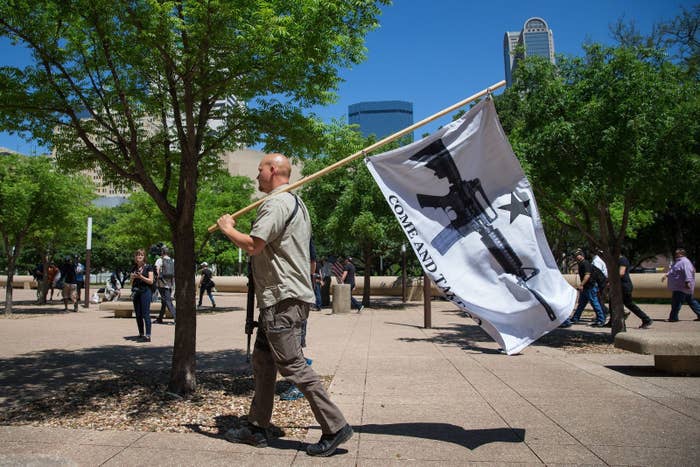
A judge ruled Sunday that the National Rifle Association cannot add an anonymous 19-year-old plaintiff to its lawsuit against Florida opposing the state's new gun restrictions, which lawmakers passed in response to the Parkland school shooting that killed 17 people.
The organization asked that the teen be added to the suit using a pseudonym, to avoid potential harassment over her support for the Second Amendment.
But a judge ruled that the teenager's circumstances did not constitute an "exceptional case" that outweighed the "strong presumption in favor of parties' proceeding in their own names," in the interest of keeping court matters public.
US District Judge Mark Walker, who sits in Tallahassee, said in the ruling that "people — especially teenagers — should not have to subject themselves to threats of violence, continued harassment, and a concerning amount of public scrutiny just to share their views about the Second Amendment (whatever those views may be)." He cited the vitriol directed at students at Marjory Stoneman Douglas High School, who advocate online and in person for gun control, as an example.
But the ruling ultimately found that the individual's views on gun control did not fall under an exception made for "matters of a sensitive and highly personal matter," which could allow for the use of pseudonyms to protect the individual's privacy.
The NRA originally filed the lawsuit in March, hours after Florida Gov. Rick Scott signed legislation that raised the age limit for buying rifles from 18 to 21 and extended a three-day waiting period for handgun purchases to include long guns.
The association argued the new age requirement violates the Constitution and asked a federal judge to stop the law on those grounds.
"At 18, citizens are eligible to serve in the military — to fight and die by arms for the country," the lawsuit states. "This blanket ban violates the fundamental rights of thousands of responsible, law-abiding Florida citizens and is thus invalid under the Second and Fourteenth Amendment."
The law, which also includes money to arm and train school staff, came in response to pressure from students at the school where the Valentine's Day massacre of 17 took place, using hashtags like #NeverAgain.
In his ruling, stating that the suit may not be amended to include anonymous plaintiffs, Judge Walker also included discussion on "the internet, social media, and the 24-hour news cycle."
"What this means is that if a person attaches their name to a lawsuit — and especially if that lawsuit is sensational — then everyone will quickly be made aware of it," he wrote. "Articles get posted online, and the responding comments, tweets, and whatever-else-have-you's often devolve into a rhetorical barrage of hate.
"Unfortunately, it seems the internet just doesn’t always bring out the best in us."
Read the full ruling below:
